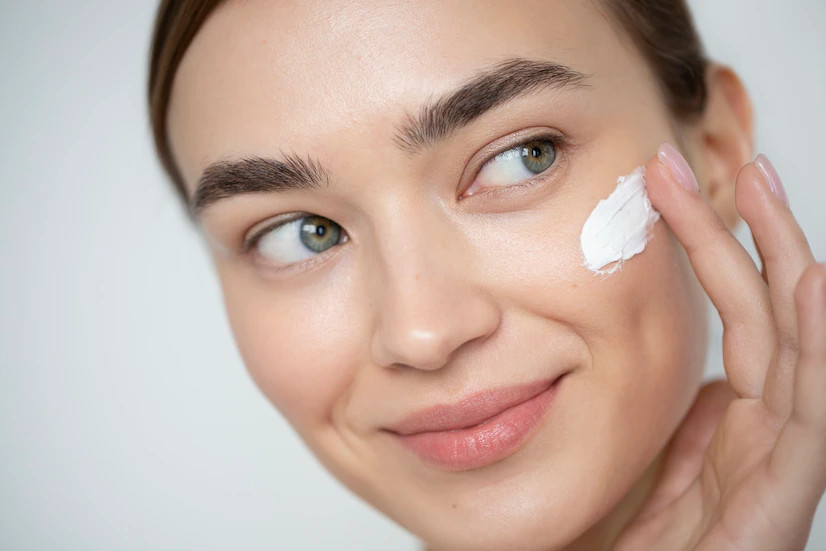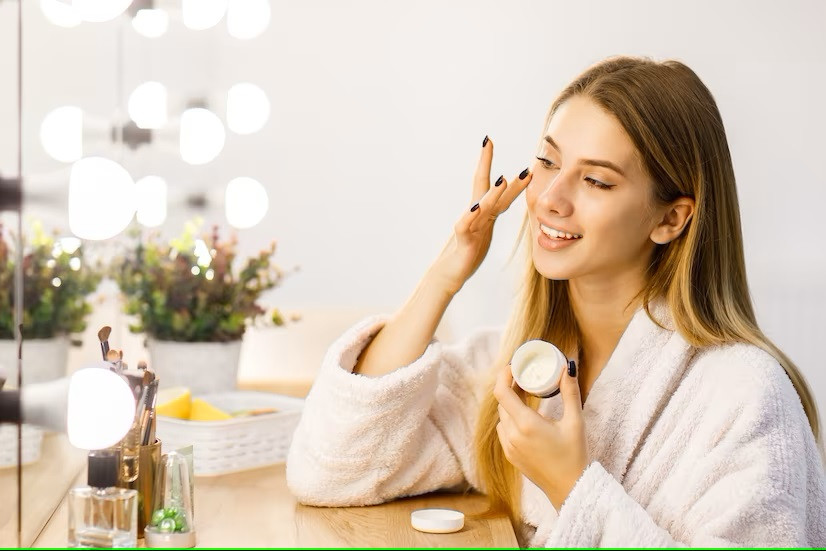Retinol is a form of vitamin A found in skin care products. Retinol stimulates collagen formation, allowing the skin to maintain its suppleness and elasticity. Fine lines, wrinkles, and other symptoms of aging on the skin can be decreased by boosting collagen production.
Although retinol provides several advantages in skin care, it should be used with caution and in combination with other products. You should consider potential irritation, interactions with other substances, and dosages that may be excessive when combined with other products.
Avoid products that should not be used with retinol
There are several ingredients present in skin care products that should not be used with retinol, including:
Glycolic acid
Alpha-hydroxy acid (AHA) glycolic acid are naturally found in dietary sources. One common source of glycolic acid is sugar cane.
Applying this active ingredient to skincare products will exfoliate the top layer of dead skin cells and heal sun-damaged skin. Glycolic acid is used for the treatment of acne, wrinkles, facial skin patches, and acne scars.
Indeed, the simultaneous use of glycolic acid and retinol can effectively exfoliate and promote regeneration. However, it is important to note that using them together could increase the risk of experiencing irritation. In order to optimize the utilization of both substances, it is advisable to apply glycolic acid throughout the morning and retinol during the evening. Additionally, it is recommended to apply both substances in small quantities to allow the skin enough time to adapt
Stop using glycolic acid and retinol immediately, and see a dermatologist or skin care specialist if you experience any unpleasant reactions or irritation.
Read more: Facts About Retinol: Can You Really Thin Your Skin?
Benzoyl Peroxide
Benzoyl peroxide is a commonly used remedy for the treatment of problems with acne. This active ingredient functions by reducing the quantity of microorganisms responsible for generating acne and preventing inflammation.
Combining it with retinol may lessen retinol's efficacy. To maximize the effects of each, it is best to apply them at different times.
Salicylic acid
Salicylic acid is a soluble form of beta hydroxy acid (BHA) that may dissolve in oil and fat. This acid has the ability to enter the pores and dissolve excess sebum, making it ideal for oily skin. This will lead to clean skin and the elimination of excess oil.
Combining retinol with salicylic acid might result in skin dryness and irritation. Excessive dry skin might actually exacerbate oil production, leading to a worsening of your acne condition.
Read more: Know How To Use Salicylic Acid
Vitamin C
Vitamin C is good for the skin because it is a strong antioxidant. Antioxidants can protect the skin from damage caused by free radicals from exposure to sunlight, pollution, and other environmental factors
Combining vitamin C with retinol is not recommended since it may compromise the effectiveness of both substances. Vitamin C has an acidic nature, whereas retinol has a basic nature. Furthermore, the simultaneous use of these substances can potentially lead to skin irritation
If you need medical advice or consultation, you can either visit a doctor or make use of the consultation features that are available in the Ai Care application by downloading the Ai Care application from the App Store or Play Store.
Looking for more information about other diseases? Click here!
- dr Nadia Opmalina
Cleveland Clinic (2022). Retinol. Available from: https://my.clevelandclinic.org/health/treatments/23293-retinol
Kristeen Cherney (2023). How Does Retinol Work on the Skin?. Available from: https://www.healthline.com/health/beauty-skin-care/how-does-retinol-work
Madeleine Burry (2023). Retinoids: Types, Benefits, How To Use. Available from: https://www.health.com/condition/skin-conditions/use-retinoid-products-safely
Hannah Frye (2023). Salicylic Acid & Retinol Together: What The Pros Say. Available from: https://www.mindbodygreen.com/articles/salicylic-acid-and-retinol-together-what-the-pros-say
Jessica Migala (2023). 6 Skin-Care Ingredient Combinations That Don’t Mix. Available from: https://www.everydayhealth.com/skin-beauty/skin-care-ingredient-combinations-that-dont-mix/
WebMD (2020). Glycolic Acid - Uses, Side Effects, and More. Available from: https://www.webmd.com/vitamins/ai/ingredientmono-1685/glycolic-acid
WebMD (2020). Hyaluronic Acid - Uses, Side Effects, and More. Available from: https://www.webmd.com/vitamins/ai/ingredientmono-1062/hyaluronic-acid
WebMD. Benzoyl Peroxide Gel - Uses, Side Effects, and More. Available from: https://www.webmd.com/drugs/2/drug-1344/benzoyl-peroxide-topical/details












